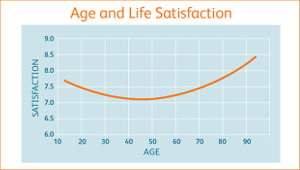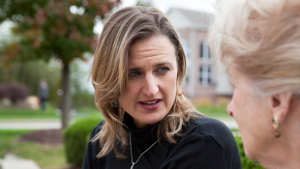- Our Research
- Research Areas
- Addictions
- Aging & Geriatrics
- Behavior Change
- Biostatistics
- Cancer
- Cardiovascular Health
- Child & Adolescent Health
- Chronic Illness Management
- Health Informatics
- Health Services & Economics
- Healthy Communities
- Medication Use & Patient Safety
- Mental Health
- Obesity
- Preventive Medicine
- Social Determinants of Health
- Vaccines & Infectious Diseases | COVID-19
- Our Scientists
- Collaborate with Us
- Our Publications
- Research Funding Sources
- Research Areas
- News and Events
- Get Involved
- About Us
- Live Healthy
All Articles on Aging
- And when I’m 84?
Clinicians, researchers, and Beatles fans take note: Older people’s needs are diverse and constantly changing, Dr. Eric B. Larson writes.
- Targeting risk factors could prevent 1 in 3 dementia cases
International experts on The Lancet Commission report, including KPWHRI's Dr. Eric B. Larson, identify 9 risk factors from childhood onward.
- Never too early or too late for healthy aging
Here are some handy evidence-based health tips tailored by decade of life.
- Dementia is developing in a smaller proportion of older Americans over time
Trend tied to more education, physical activity, and controlling heart risks, say Dr. Eric B. Larson and University of Michigan team
- Preventing dementia: A long-term ACT idea goes mainstream
Next week, biostatistician Dr. Jennifer Bobb attends her second symposium for the 30-year Adult Changes in Thought study. Here’s a meeting preview.
- At what age are you happiest?
Group Health Research Institute executive director Dr. Eric Larson unpacks the findings of several life satisfaction studies.
- Early signs of cognitive impairment? Learn about Your Life, Your Choices
If you or a loved one is experiencing cognitive impairment or even early signs of Alzheimer’s disease or another form of dementia, now is a good time to start talking with your health care providers and family members about advance care planning.
Kaiser Permanente Washington Health Research Institute for:
Kaiser Permanente Washington Health Research Institute
Phone: 206-287-2900Fax: 206-287-2871
Contact us
Sign up for our newsletter
Policy on Conflict of Interest
Nondiscrimination Notice and Language Access Services
Land Acknowledgment
Our Seattle offices sit on the occupied land of the Duwamish and by the shared waters of the Coast Salish people, who have been here thousands of years and remain. Learn about practicing land acknowledgment.









